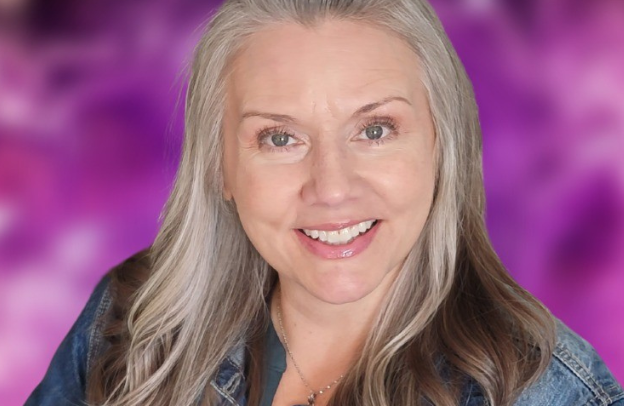How Emotional Intelligence Shapes Our Connections: Lessons from April Wyett on the Obehi Podcast

There’s never been a more critical time to unlock the transformative power of emotional intelligence. Today, holistic wellness expert April Wyett will guide us through the essential practice of fostering mindful connections in our daily lives. In a world where constant connectivity coexists with growing isolation, one question looms: How deeply do we truly understand one another? Recently featured on the Obehi Podcast, Wyett argues that emotional intelligence (EI) is the key to bridging the emotional divides that keep us apart. With her unique insight, she reveals how cultivating EI can help us form more meaningful, authentic connections in a world that increasingly feels disconnected.
Want to learn more about storytelling? Start by downloading the first chapter of The Storytelling Mastery.
In a warm and thought-provoking conversation with Obehi Ewanfoh, a storyteller and host known for his ability to draw out the raw truths in his guests, Wyett reveals the transformative impact of emotional intelligence—one mindful connection at a time.
The growing influence of the African diaspora is one of the strongest examples of how storytelling, cultural awareness, and emotional intelligence come together to create shared understanding across continents.
Data from the World Bank shows that the African diaspora sends nearly $50 billion annually in remittances to their families, supporting local economies and cultural preservation in ways that deepen connections between African nations and their global diasporic communities.
Platforms like the Obehi Podcast, which centers on African voices and issues, have become instrumental in highlighting the stories of those who seek to bridge global divides with authentic dialogue.
For entrepreneurs, leaders, and anyone passionate about genuine connections, Wyett’s insights on the importance of emotional intelligence are not only inspiring—they’re essential.
Why Emotional Intelligence Matters More Than Ever
With remote work, virtual meetings, and digital-first communication on the rise, the need for emotional intelligence has arguably never been greater. Research from the Harvard Business Review shows that emotional intelligence is now considered one of the most critical leadership skills, with high-EI managers fostering higher engagement, empathy, and productivity among their teams.
For leaders within the African diaspora, building strong cultural and emotional awareness is especially pivotal as they navigate varied audiences, often within fast-evolving spaces that demand both cultural sensitivity and emotional agility.
Wyett’s insights tap into this need, offering a path forward for those looking to enrich their environments by fostering genuine human connection.
Emotional intelligence is foundational to Wyett’s work, and it’s a theme she explored deeply in her conversation with Ewanfoh. As a holistic wellness counselor, Wyett has dedicated her life to helping people reconnect with their inner selves and each other, believing that fostering emotional intelligence can create ripple effects throughout society.
“When we start to understand our emotions, we create spaces where others feel understood,” Wyett shared during the podcast. Her journey—from the world of corporate America to a practice focused on healing and intentional living—reflects her commitment to combating the “epidemic of disconnect” she believes affects so many.
April Wyett’s Journey: From Corporate Life to Wellness Guru
Wyett’s path to emotional intelligence and holistic wellness began in the corporate sector. After years of navigating the stresses of a fast-paced work environment, she noticed how disconnection—from oneself and others was a pervasive issue.
In 2009, she took a bold step: leaving corporate life to pursue a career in holistic wellness, where she could offer people the tools to cultivate emotional awareness and resilience.
Her method combines elements of emotional intelligence, meditation, and body-mind practices, creating an approach that seeks to relieve stress and tension holistically. Through her Living With Intention Podcast and international best-selling anthology, Moving Beyond Boxes: The Journey to Self-Discovery, she has become a respected voice for individuals seeking emotional and spiritual rejuvenation.
See also Learn About Stress Management with Joy Langley, an Emotional Intelligence Coach & Therapist
Wyett is driven by the idea of the “ripple effect.” She believes that when individuals invest in emotional intelligence and wellness, the benefits extend far beyond their own lives.
Improved relationships, heightened empathy, and a greater sense of community well-being are some of the lasting impacts that can spread outward from a single person’s growth. In her words, “Helping others find vitality and peace continues the spread of wellness vibes far and wide.”
In her conversation with Ewanfoh, she emphasized the need for intentional connection, particularly in settings where people may feel alienated or undervalued.
Understanding Emotional Intelligence: The Basics
Emotional intelligence, often defined as the capacity to recognize and manage one’s own emotions and understand the emotions of others, is essential for building empathy, resilience, and strong interpersonal connections. According to the American Psychological Association, EI has four core components:
- Self-awareness,
- Self-regulation,
- Social awareness,
- And relationship management.
Wyett’s approach weaves these elements into a holistic framework, encouraging her clients to think deeply about how their emotional health impacts those around them. In the Obehi Podcast interview, she described EI as “a foundation for healing, both individually and collectively.”
The African diaspora has long understood the importance of these qualities, especially when building communities in new environments.
Studies show that African diasporic communities across North America and Europe are not only sources of financial remittance but also serve as cultural and emotional bridges, nurturing transcontinental relationships that rely on shared values of empathy and resilience.
For example, African-owned businesses in the United States have grown by 38% over the last five years, according to the Minority Business Development Agency. These enterprises often prioritize emotional connection and community support as key pillars, echoing Wyett’s belief in the power of empathetic leadership and shared understanding.
Emotional Intelligence in Action: Key Lessons from April
Throughout the podcast, Wyett shared several strategies for cultivating emotional intelligence in everyday life, each grounded in her own journey and professional experience. Here are three key takeaways:
The Power of Listening and Presence:
Wyett highlighted the importance of truly listening as a means of connecting with others. In her work as a counselor, she sees firsthand how people’s lives change when they feel genuinely heard. Ewanfoh exemplifies this approach as a host, and it is evident in his interaction with Wyett on the podcast.
He asked thoughtful questions, giving her space to share freely, which allowed for a deeper, more impactful conversation.
For leaders and entrepreneurs, Wyett’s advice serves as a reminder that listening—actively and without judgment—can foster a sense of trust and openness that is essential for meaningful relationships.
Cultivating Empathy in Everyday Life:
According to Wyett, empathy is not just a personal virtue; it’s a practical skill that can transform social and professional environments.
She encouraged listeners to be more aware of their own emotional states as a way of developing empathy toward others. Research supports this: a study published in the Journal of Business Ethics found that managers who demonstrate empathy tend to experience higher employee loyalty and team cohesion.
In the African diaspora, where cultural identity and heritage play significant roles, fostering empathy can be crucial to bridging generational and experiential divides. For Wyett, empathy means “meeting people where they are,” a lesson she believes can uplift not just individuals but entire communities.
See also Alfredo Sambù: A Journey of Entrepreneurship and Community Leadership in Italy
Building Resilience Through Mind-Body Wellness:
Wyett spoke about the intersection of emotional intelligence with body-mind practices like meditation. Stress and burnout are widespread, especially in high-stakes fields. Wyett’s holistic approach provides tools for resilience, helping people manage their emotional energy to avoid exhaustion.
She shared that practices like mindfulness meditation enhance one’s self-awareness, thereby promoting emotional regulation—a skill that is vital for maintaining positive relationships at work and home.
The resilience that these practices build has been a lifeline for many in diasporic communities, where balancing new cultural identities with heritage can be a source of both pride and pressure.
Emotional Intelligence and the Role of Storytelling
The podcast conversation demonstrated that storytelling is an essential medium for cultivating emotional intelligence. Ewanfoh’s skill as a storyteller allowed Wyett to share her journey openly, which, in turn, resonated deeply with listeners.
In response to the episode, Wyett expressed gratitude for the experience, noting how Ewanfoh’s empathetic interview style created a space for vulnerability and honesty. She called it a “co-creative experience,” and her gratitude reflects the powerful role that storytelling can play in EI.
Storytelling has long been central to the African diaspora, serving as a means to preserve history, affirm identity, and foster empathy.
For entrepreneurs, leaders, and anyone who wants to make a positive impact, the lessons in storytelling and emotional intelligence from this conversation are a blueprint for fostering genuine human connections.
Applying April’s Insights in Daily Life
For those inspired by Wyett’s insights, there are practical steps to incorporate emotional intelligence into daily interactions. Wyett encourages practicing active listening, paying attention to emotional cues, and taking a moment for self-reflection before responding to others.
Simple practices like mindful breathing can also help regulate emotions in stressful situations. Above all, Wyett believes that cultivating EI requires a commitment to intentional living—setting aside time to connect deeply with oneself and others.
As the African diaspora continues to grow in influence, both economically and culturally, emotional intelligence can be a key factor in maintaining strong, inclusive communities. Data from the Migration Policy Institute shows that the African diaspora in the United States alone contributes over $50 billion annually to the American economy.
See also Storytelling in Creative Economy: A Path for Creative Entrepreneurs
However, the diaspora’s greatest contributions go beyond financial metrics; they include the intangible value of building cultural bridges and fostering understanding.
By embracing emotional intelligence, members of the diaspora—and indeed, all people—can continue to break down barriers and foster environments where everyone feels valued.
Looking Forward: A Ripple Effect
Wyett’s commitment to spreading wellness and emotional intelligence echoes her belief in the ripple effect—where the benefits of inner peace extend beyond the individual to enhance families, workplaces, and entire communities.
Her conversation with Ewanfoh is a reminder that even small acts of empathy and awareness can create waves of positive change.
As the world becomes more connected, yet paradoxically more divided, emotional intelligence is no longer just a personal asset; it is a necessity.
For leaders, entrepreneurs, and anyone committed to fostering understanding, Wyett’s teachings offer a pathway forward—one that begins with listening, empathy, and the courage to connect deeply with others.
Want to learn more about storytelling? Start by downloading the first chapter of The Storytelling Mastery.





